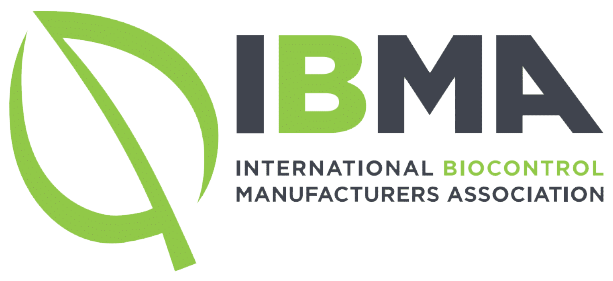IBMA IEEP Joint Press Release: Biocontrol can offer a systemic and balanced solution for sustainable agriculture
| A new report by the Institute for European Environmental Policy (IEEP) identifies the benefits of biocontrol as an alternative to environmentally harmful plant protection methods. The effect of plant protection methods on biodiversity and health are now at the centre of political and technical discussions. Particularly in face of the upcoming revision of the Sustainable Use Directive, a milestone within the implementation of the Green Deal objectives, it is essential to explore sustainable alternatives. Key findings As a non-chemical and targeted input, biocontrol reduces the risks of environmental contamination (soil, water, human health). Its application thereby supports biodiversity enhancement and soil quality by creating a favourable status for microbial communities. Biocontrol can therefore be an enabler of the European Green Deal, particularly for the Farm to Fork objectives. Using natural mechanisms for pest and disease control brings farmers closer to understanding life c and insects’ behaviour while creating a non-toxic environment for farm workers and consumers. The effectiveness of biocontrol can be amplified in ecological focus areas, such as flower strips. Deploying natural enemies in a framework of sustainable farming practices increases the success rate. The growing demonstration of biocontrol efficacy has boosted the biocontrol market. Nonetheless, the development of economically competitive biocontrol requires an adapted registration process, instead of following rules originally intended for chemical pesticides. The absence of a clear legal definition of biocontrol and its importance to Integrated Pest Management (IPM) and organic agriculture highlights the need for a systemic approach at the EU level. Faustine Bas-Defossez, External Impact Director at IEEP, said: “The science is unequivocal on the need to move rapidly towards a sustainable food and farming system in order to stay within planetary boundaries. The European Green Deal, in particular its Farm to Fork and biodiversity strategies, aim at setting the way towards that new system of food production and consumption. As a systemic and balanced alternative to chemical inputs in farming, biocontrol is certainly an enabler of that system change. As an independent Think Tank striving for sustainability and science-based policy making, we were very enthusiastic when IBMA approached us to conduct a literature review on the benefits of biocontrol for the environment and its wider economic, climate and governance impacts. We indeed believe that such evidence is needed for informed and sound decision making on the European Green Deal objectives’ implementation.” Top five policy recommendations: Definition: Using a common EU definition on biocontrol would bring clarity of its technical aspects to the political discussion on pest control for sustainable agriculture. Legal framework: Adapting the current EU legal framework to recognise the non-toxic implications of biocontrol, in comparison to chemical products, should be considered. Alignment opportunities: By increasing the uptake of biocontrol use, as part of IPM, the CAP can be better aligned with the SDGs and the Farm-to-Fork strategy – in creating a pathway for achieving the 2030 targets on organic farming and chemical pesticide reduction. Research needs: Extending research topics and investment beyond technical issues to biocontrol’s relation to climate change mitigation and farm economics will create a more holistic image of the impact of the use of biocontrol. Field application: Pushing for larger scale and accelerated application, supported by available policy instruments in the Common Agricultural Policy, will show the potential that biocontrol demonstrates for controlling plant pests and diseases, in support of EU Green Deal targets. Jennifer Lewis, Executive Director at IBMA said: “IBMA is delighted that IEEP was able to conduct this work, that shows the broad sustainability benefits of biocontrol, highlighting that biocontrol is so much more than just an alternative to pesticides. Biocontrol maintains and enhances biodiversity and soil health contributing to a resilient agriculture that is so important to counteract climate change. More information on biocontrol: • IBMA’s position on SUD review • IBMA’s biocontrol definition • IBMA’s biocontrol success examples About the report IEEP was commissioned by the International Biocontrol Manufacturers’ Association (IBMA) to review the benefits of biological pest control for nature, food, health and climate. The report was co-authored by Jean-François Hulot, associate at IEEP (jfhulot.ieepassociate@ieep.eu), and Nora Hiller, Policy Analyst (nhiller@ieep.eu). Media contacts Sarah Pepinster Communications officer, Institute for European Environmental Policy (IEEP) spepinster@ieep.eu + 32 273 97 471 Isabelle Pinzauti Babrzynski Advocacy and Communication Manager, IBMA Global isabelle.pinzauti@ibma-global.org + 32 497 69 58 42 For editors International Biocontrol Manufacturers Association (IBMA) is the voice of the Biocontrol technologies industry and represents all its members to promote them and bring to the market via proportionate regulation these green innovative and effective technologies for sustainable agriculture, allowing the farmers to grow healthy, productive and profitable crops. Our solutions are inspired by, harnessed or harvested from nature. These green biocontrol solutions protect the crops and environment of today and importantly tomorrow via a holistic Biology 1st approach of agriculture. For more information about IBMA, visit www.ibma global.org . The Institute for European Environmental Policy (IEEP) is a sustainability think tank with offices in London and Brussels. Working with stakeholders across EU institutions, international bodies, academia, civil society and industry, our team of economists, scientists and lawyers produce evidence-based research and policy insight. Our work spans nine research areas and covers both short-term policy issues and long-term strategic studies. As a not-for-profit organisation with over 40 years of experience, we are committed to advancing impact-driven sustainability policy across the EU and the world. For more information about IEEP, visit www.ieep.eu or follow us on Twitter @IEEP_eu and LinkedIn. |
 Square de Meeûs 35, 1000 Bruxelles
Square de Meeûs 35, 1000 Bruxelles